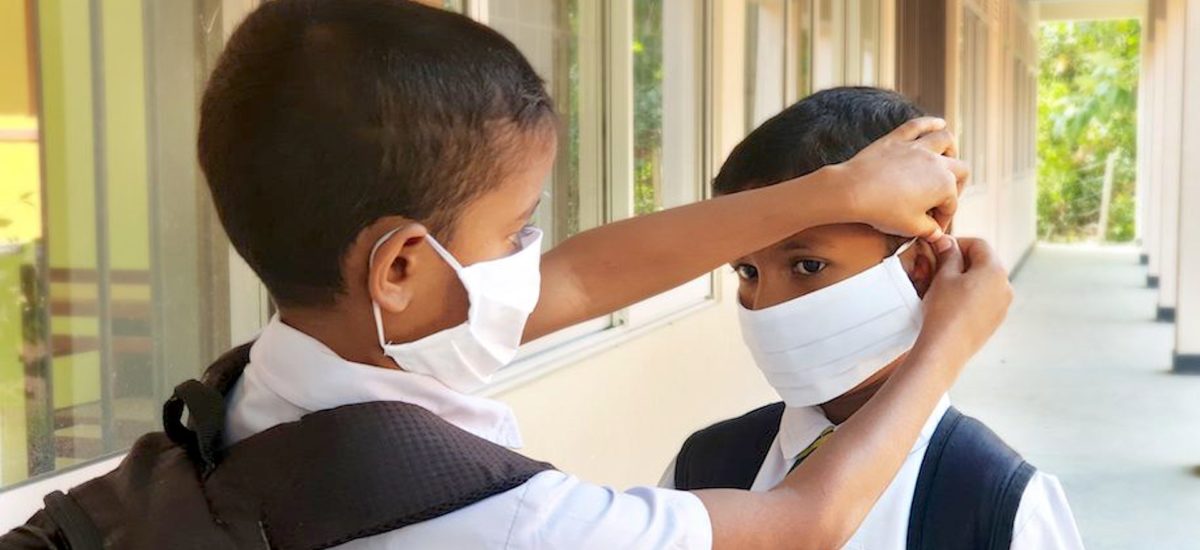Photo courtesy of Business Traveller
On April 30 Sri Lanka recorded the highest number of cases in a day at 1,662 cases – and a seven-day average of 1,208 cases. With the vaccine supply low due to global bottlenecks and rising cases in the country and the region, there is a sense of despair and apathy among the community. Perhaps this is the worst time to lose faith in our ability to control the virus because we have the most power to prevent the infection spread. We also have one of the most effective tools to minimize infection spread: masks.
Yes, at a time where we all want to get vaccinated, the absence of available vaccines can be discouraging. As vaccine equity remains a global challenge, there are some encouraging signs where global push for vaccine equity is producing some results with Moderna, one of the producers of a m-RNA vaccine, agreeing to share the intellectual property rights for vaccine production. Additionally, more vaccines are in the pipeline of production or of approval. Even with all these efforts, the realistic timeline of Sri Lanka reaching herd immunity is months away at best.
With a singular focus on vaccines, it is easy to forget the power of non-pharmaceutical methods of infection spread prevention and primary of those methods are masks. Additionally, as more evidence point towards the risks of infection spread via air in indoor settings and even in crowded outdoor gatherings, high filtration masks (such as N95) have become more and more important. As multiple case studies point out, even if you are physically distancing in indoor settings the threat of infection is very high given the high probability of the virus spreading through air (tiny droplets or aerosol particles) especially when indoors.
A useful rule of thumb will be to take all precautions outside of your bio-bubble (such as immediate family you live with) and in crowded settings including but not limited to bus or train stops, shops and when walking in crowded settings. The power of non-pharmaceutical interventions such as masks, physical distancing, avoiding crowded gatherings and washing hands have had significant results in many countries including Vietnam, New Zealand and even in the US,.
Wearing your mask will be vital even when vaccinated. Despite vaccinating its population at record speed in the US, masking especially indoors and outdoor crowded gatherings remains as a health guideline. The way out of this pandemic relies heavily upon non-pharmaceutical interventions even as pharmaceutical interventions become available. As estimates suggest, the multi-pronged effort of mask wearing and other non-pharmaceutical interventions together with vaccination will be our way forward.
From a government prevention policy perspective, it will be crucial to have a comprehensive pro-active prevention effort. For example, prohibiting gatherings after 10 pm might not give us optimal results as the virus do not have a time frame in which it spreads. Simple measures such as completely barring indoor and outdoor gatherings and emphasizing the means of infection spread, with constant reminders, as we ramp up testing and try to procure more vaccines will help us hold the virus at bay. Frequent press conferences with scientific panels and responsible authorities will reduce panic and help the public stay informed in a constantly evolving situation without having to turn to gossip sites and snappy headlines.
As a community, let’s not forget the power of our masks and to wear our masks properly. The power that you as an individual and us as a collective have in preventing the virus from spreading is enormous and we can help each other stay safe.

